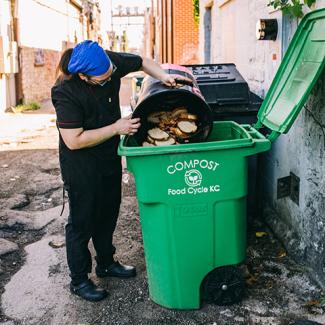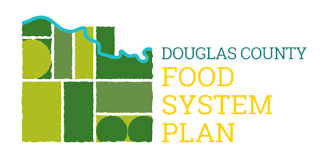Goal Five: Food Waste Elimination
Goal #5: Our community eliminates waste in our local food system
National studies suggest that up to 40% of all food produced is wasted. Environmental, social, and economic costs arise when the food we produce ends up in landfills. Reducing food waste ensures that the time, energy, and resources that produce food don’t go to waste, and that safe, healthy food ends up first feeding the community.
The Objectives and Policies in Goal 5 suggest actions that the community can pursue to encourage food recovery (so that food first goes to feed people), to support composting of food that can’t be eaten, and to create a culture of food waste reduction through education and outreach.
Local data on food waste is sparse. The indicators below can help us track our progress in achieving this goal, but additional data collection should be a continued focus for this food plan goal:
Pounds of food recovered by local food bank, Just Food
Overview
Just Food, the food bank serving Douglas County, partners with area gleaning programs, grocery stores, restaurants, caterers, and other food service providers to recover food that may otherwise to go waste.
About the Data
Source: Just Food
Update Frequency: Annually
Notes: Just Food has been tracking food recovery efforts since 2014. By increasing the number of partners participating in the program, Just Food has grown the volume of food that is recovered and distributed among their clients.
Community Voices

Growing Common Ground to New Heights
In 2017, when the Douglas County Food System Plan (FSP) was first adopted, Common Ground, the City of Lawrence’s urban gardening and farming program, was already an established and robust effort.

Dining Out on “Purposeful Plates”
In early 2019, members of the Douglas County Food Policy Council (DCFPC) Goal 5 working group, which focuses on eliminating food waste through reduction, recovery, and diversion, partnered with Dr. Susan Harvey from The University of Kansas...

